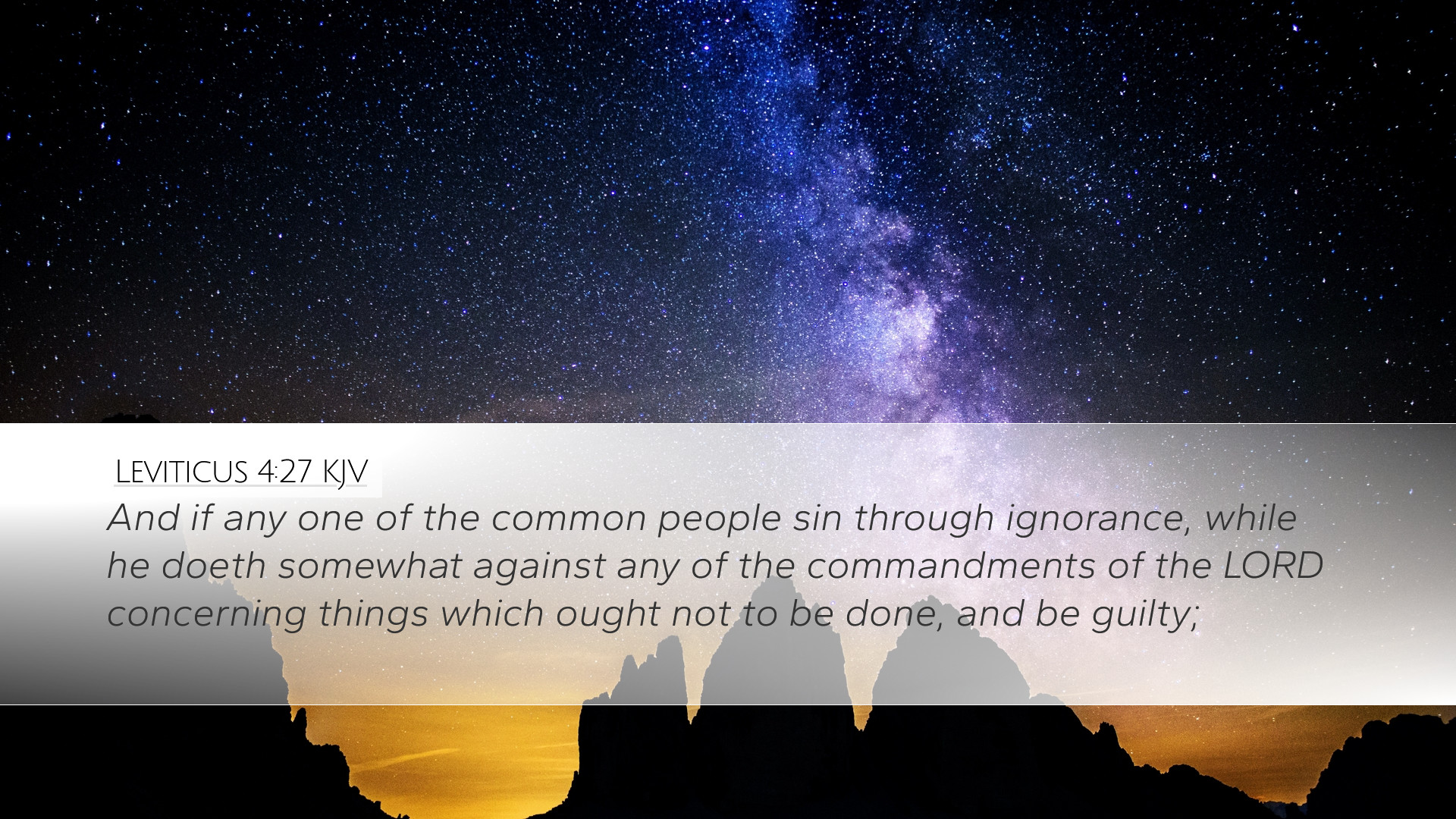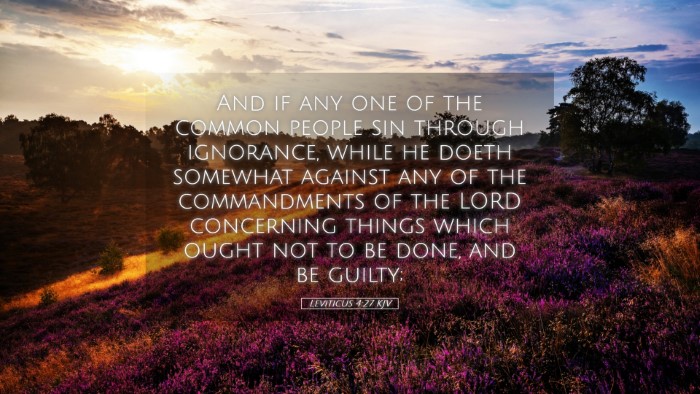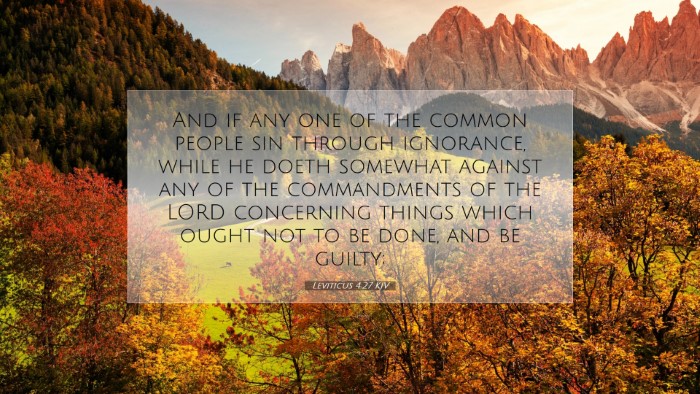Commentary on Leviticus 4:27
Leviticus 4:27 states: "And if any one of the common people sins unintentionally in doing any one of the things that by the Lord’s commandments ought not to be done, and realizes his guilt,". This verse is a key part of the larger context of the sacrificial system laid out in the book of Leviticus, highlighting the importance of atonement for sin.
Contextual Analysis
Leviticus is often seen as a manual for worship and holiness for the Israelite community. Within its chapters, God provides instructions for various offerings and sacrifices. Chapter 4 particularly deals with the sin offerings, emphasizing the various situations that require atonement. This involves not only the high priest or leaders of the people but extends to the common people, suggesting a theology of grace and inclusion.
Theological Insights
-
Unintentional Sin:
The verse specifically notes "sins unintentionally," which brings forth the understanding that sin can occur without deliberate intent. This is a critical insight as it reflects the broader biblical teaching on the nature of human frailty. Matthew Henry emphasizes that this acknowledgment of inadvertent sin indicates God's recognition of human weakness and the provision for atonement.
-
Guilt Awareness:
The latter part of the verse refers to the moment of realization of guilt. Adam Clarke notes that this signifies a pivotal point; it is not merely sinning that necessitates offering, but the awareness of one’s guilt that prompts the need for atonement. This awareness and confession are crucial in the life of faith, informing believers that acknowledgment of sin leads to restoration.
-
Inclusivity of Atonement:
Albert Barnes remarks on the significance of this verse as it extends the need for sacrifice to all people, not just priests or leaders. The sacrificial system was designed to ensure that every member of society had access to forgiveness and that the community could collectively restore their relationship with God.
-
God's Justice and Mercy:
The dual aspect of God's character is showcased here: He is just in requiring atonement for sin while also merciful in providing a means of reconciliation. This balance is essential for theological reflection, as it mirrors the New Testament teaching on Christ as the ultimate sacrifice for humanity's sin.
Practical Implications for Today
For modern believers, this passage serves as a reminder of the need for continual self-examination and the acknowledgment of faults. The awareness of sin should lead to a proactive approach towards confession and reconciliation, both with God and within the community. It highlights the necessity that atonement is not confined to the elite or clerical ranks, but is made available to all, echoing the New Covenant promise.
Conclusion
Leviticus 4:27 illustrates the profound understanding of sin within human nature and God’s gracious provision for atonement. By combining insights from revered commentators, it becomes evident that this verse speaks to both the inherent sinfulness of humanity and the boundless mercy of God. Pastors, theologians, and students of the Word can draw rich, practical applications from this text, ensuring that the principles of awareness, confession, and community are continuously explored within their ministries and academic pursuits.


